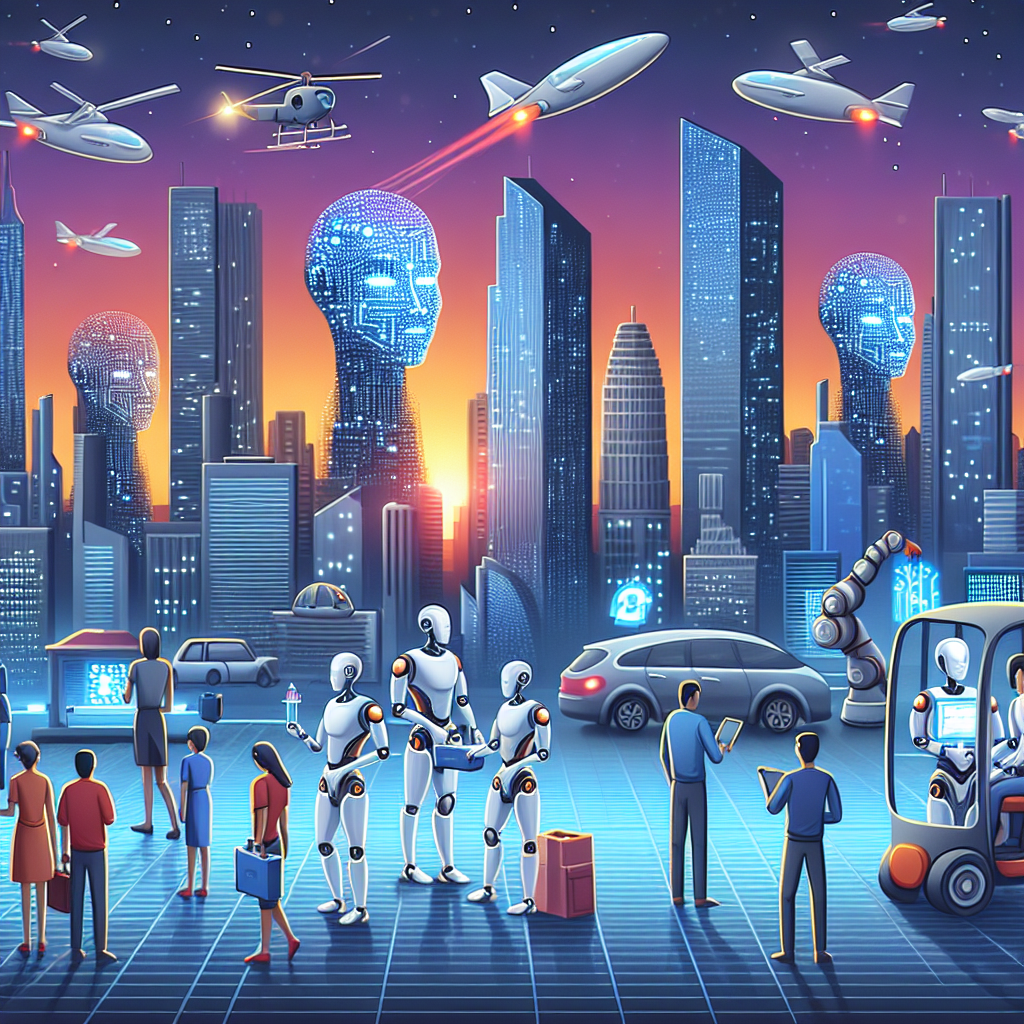Artificial General Intelligence (AGI) is a rapidly advancing field of technology that has the potential to revolutionize the job market in ways that were previously unimaginable. As AGI systems become more sophisticated and capable, there is growing concern about the impact they will have on the workforce. Will robots take over jobs that were once performed by humans? Will there be mass unemployment as a result of this technological advancement? In this article, we will explore these questions and examine the potential implications of AGI on the job market.
What is AGI?
Artificial General Intelligence, or AGI, refers to a type of artificial intelligence that possesses the ability to understand, learn, and apply knowledge in a way that is similar to human intelligence. Unlike narrow AI systems, which are designed to perform specific tasks or functions, AGI systems are capable of adapting to new situations and learning from experience. This makes them highly versatile and flexible, with the potential to perform a wide range of tasks across different domains.
AGI systems are still in the early stages of development, but researchers are making rapid progress in this field. As technology continues to advance, it is becoming increasingly likely that AGI systems will become a reality in the near future. This has led to a growing debate about the potential impact of AGI on the job market and the economy as a whole.
Will Robots Take Over Jobs?
One of the key concerns surrounding AGI is the potential for robots and automation to replace human workers in various industries. As AGI systems become more advanced, they will be able to perform tasks that were previously thought to be the exclusive domain of humans. This raises the question of whether robots will take over jobs and lead to mass unemployment.
While it is true that AGI systems have the potential to automate many tasks currently performed by humans, it is important to note that this does not necessarily mean that robots will take over all jobs. In fact, many experts believe that AGI will create new opportunities for innovation and growth, leading to the creation of new jobs in emerging industries.
For example, AGI systems could be used to automate repetitive and mundane tasks, freeing up human workers to focus on more creative and strategic activities. This could lead to increased productivity and efficiency in the workplace, as well as the development of new products and services that were previously not possible.
Additionally, AGI systems could also create new job opportunities in fields such as robotics, data science, and machine learning. As the demand for skilled workers in these areas continues to grow, there will be a need for individuals with the expertise to design, develop, and maintain AGI systems.
Overall, while there may be some jobs that are at risk of being automated by AGI systems, the technology also has the potential to create new opportunities for workers in a variety of industries. It will be important for policymakers and stakeholders to consider the potential implications of AGI on the job market and to take steps to ensure that workers are prepared for the changes that lie ahead.
FAQs
Q: Will AGI lead to mass unemployment?
A: While AGI systems have the potential to automate many tasks currently performed by humans, it is unlikely that they will lead to mass unemployment. Instead, AGI is more likely to create new job opportunities in emerging industries and fields.
Q: What types of jobs are at risk of being automated by AGI?
A: Jobs that involve routine and repetitive tasks are most at risk of being automated by AGI systems. This includes jobs in manufacturing, transportation, and customer service.
Q: How can workers prepare for the impact of AGI on the job market?
A: Workers can prepare for the impact of AGI by developing skills in areas that are less likely to be automated, such as creativity, critical thinking, and emotional intelligence. Additionally, workers can stay informed about developments in the field of AGI and be proactive in seeking out opportunities for upskilling and reskilling.
In conclusion, AGI has the potential to revolutionize the job market in ways that are both exciting and challenging. While there may be some jobs that are at risk of being automated by AGI systems, the technology also has the potential to create new opportunities for workers in a variety of industries. It will be important for policymakers, businesses, and workers to prepare for the changes that lie ahead and to ensure that the benefits of AGI are shared equitably across society.

